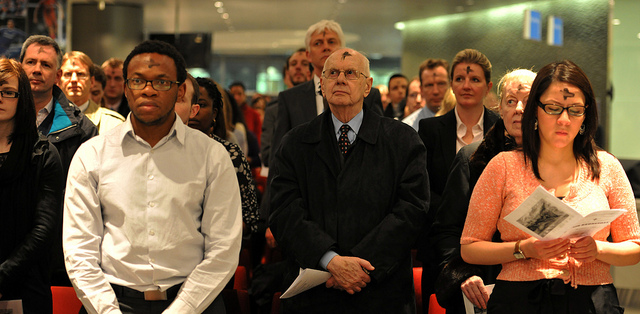I’m encouraged by the news that Panera Foundation will be opening more of its “suggested donations” stores.
Pay-as-you-can cafes appear to be a new trend, launched by Denise Cerreta of One World Everybody Eats Foundation. We’ve even got one here in my town. The atmosphere looks inviting and far more fun than most of the soup kitchens I’ve been to…and that’s a big part of the point.
One of the financial points at work is that the person taking your order names the suggested donation; there are drop boxes where you can put your payment. If making a credit card payment, you are asked to name the amount to put on the card. In the first year of Panera’s community cafe, it broke even, with an estimated 20% giving more than the suggested amount, 20% giving less or nothing, and 60% paying the exact amount.
The manager, Colleen Kincaid, notes:
You give what you have, and if you have a little bit of extra change, you might toss it in. It’s hard to ask in a society where we’re more used to taking.
I think she’s got a point – many of us, even if able to pay our bills, used to taking advantage of free handouts. But these cafes offer a different way to envision the world and our interactions in it. What I particularly like is the way these cafes treat ALL their customers, paying or not. We’re not primarily dollar signs, sources of income, and means to being “in the black” when it comes to the bottom line. We’re human beings, and these cafes encourage and enable us to view and treat others in the same way.
I think this is yet another sign of hope along the lines of what Pope John Paul II wrote in his encyclical Evangelium Vitae. I think that here is an example of an alternative way of thinking about economics that promotes justice, solidarity and charity, as Pope Benedict XVI discussed in Caritas in Veritate.
Contrary to patterns of thought that encourage us to believe that we’re each in this life only to preserve our own lives and promote individual well-being, here are some live counter-examples.



Trackbacks/Pingbacks